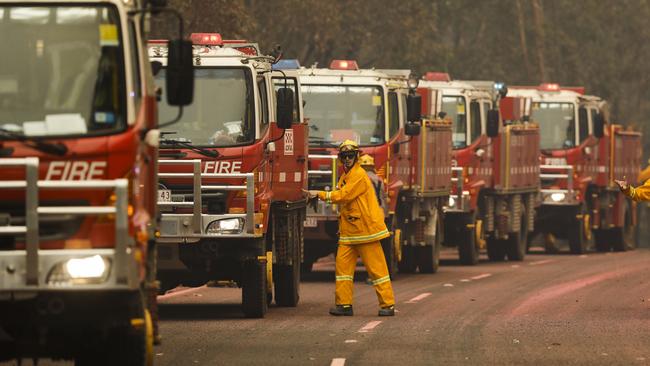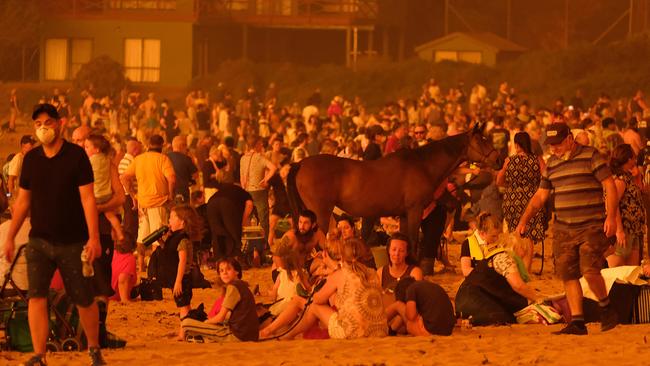National bushfire warning system locked in despite royal commission concerns
The “watch and act” warning was slammed as confusing by the royal commission — but fire chiefs have kept it in a new national alert system.
Victoria
Don't miss out on the headlines from Victoria. Followed categories will be added to My News.
THE “watch and act” warning which the bushfire royal commission found caused “significant confusion” during the Black Summer crisis has been retained in a new national alert system.
From this week, a three-level warning system will be used for natural disasters in all states, after the commission also slammed the six-year wait for a national approach to align emergency messaging across borders.
The Herald Sun can reveal Victoria was the state most concerned about keeping “watch and act”, which is the level between “advice” and “emergency warning”.

But despite a major research project in which more than two thirds of participants said they were confused by the meaning of its two “fundamentally different instructions”, every state and territory agreed to implement the same warning system which included “watch and act”.
The Herald Sun can also reveal that to reduce confusion, the new national system will include a clear call to action at each warning level, such as “move to higher ground” or “take shelter indoors”.
Victorian Emergency Management Commissioner Andrew Crisp welcomed the national approach and said it was based on extensive research and input from emergency services.
“Victoria continues to work closely with other jurisdictions on any further improvements to make warnings clearer and help people make better decisions during emergencies,” he said.
The national warning system was organised by the Australasian Fire and Emergency Service Authorities Council and kicked in on December 1.

AFAC chief Stuart Ellis told the commission in August that it would not be in place until 2021, after Victoria sought further research on a model proposed in April. It is understood that affirmed that “watch and act” was the best option and the system was locked in by fire chiefs.
But AFAC research last year found “take action now” was marginally preferred.
During commission hearings, commissioner Annabelle Bennett blasted the delay introducing a national system as “breathtaking”.
The commission’s final report said “watch and act” did not provide “a clear and succinct message that can be quickly and easily understood”. It called for nationwide education to ensure the public understood how to respond to different alerts.
The need for nationally consistent messaging was exposed during the Black Summer disaster, when fires raged across state borders and left holiday-makers stranded in unfamiliar areas.
A Victorian government spokeswoman said: “We support the development of national standards of information for consistency which supports residents to make critical decisions about their safety, recognising that it needs to meet the needs of the community.”



